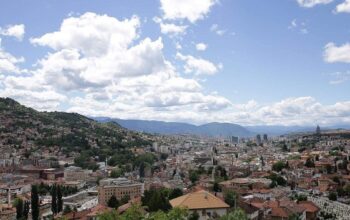Much has been said recently about the European Union’s new economy-first approach to BiH. While BiH faces a number of daunting tasks in the arena of economic reform and growth, the government of Republika Srpska has been focusing on these issues for several years already, to substantial effect. One of the most important ways the RS is working to enable and encourage growth is by combatting corruption. The RS Government has made strides in fighting corruption in recent years, and it is intensifying its fight against corruption with its recently adopted Anti-corruption Strategy for 2013-2017.
Although corruption is often difficult to measure, EU-sponsored studies indicate that bribery is much less common in the RS than it is in the FBiH or the Western Balkans as a region. According to a 2013 report on bribery by the UN Office of Drugs and Crime, funded by the EU, the prevalence of bribery by businesses is 10.2% in the Western Balkans, 13.2% in the FBiH, and 5.5% in the RS. According to the same report, the prevalence of bribery by individuals is dramatically lower in the RS (10.5%) than it is in the FBiH (25.3%). The RS corruption rate is also lower than the 12.5% rate in the Western Balkans. Moreover, a 2011 Report by the UN Office of Drugs and Crime found that attempts to illegally buy votes are roughly half as common in the RS as in the FBiH.
The RS has already successfully implemented many of the measures set out in its previous (2008-2012) anti-corruption strategy, such as establishing an a specialized unit at the Ministry of Interior for combating organized crime and corruption; enacting the Law on Conflict of Interest and establishing the Republic Commission for identification of conflict of interest; enacting the New RS Criminal Procedure Code; initiating amendments to the RS Criminal Code to harmonize it with the Council of Europe’s Criminal Law Convention on Corruption and its additional protocol; and establishing of an agency for management of expropriated property.
Over the last several years, the Special Prosecutor’s Office and Ministry of Interior of the RS have intensified their work on corruption cases. Also, significant progress has been made in the conduct of financial investigations and confiscation of property obtained through commission of crimes in accordance with the RS Law on Confiscation of Property Obtained through Commission of a Criminal Offense.
In order to build on these successes, the RS in December approved a new Anti-corruption Strategy for 2013-2017, the goal of which is to raise the RS’s anti-corruption culture to the level of developed European countries. The strategy takes into account the existing anticorruption components of more than a dozen RS laws already on the books and crafts a program to address the challenges that still exist. Among the broad priorities of the Anti-corruption Strategy are: increasing trust in public institutions by improving transparency, access to information, professionalism, and independence; strengthening policies and mechanisms for preventing and deterring corruption by public officials; securing adequate financial, human, and other resources for the proper implementation of anticorruption laws; seizing illegally-acquired property; and efficiently punishing breaches of conflict of interest laws.
In order to fulfill the new Strategy’s goals, the RS has adopted a comprehensive action plan for implementation, and established an implementation commission to oversee it. The RS’s strategy will ensure that the entity continues to lead the region not only in anti-corruption efforts, but in economic growth as well, in the years to come.


